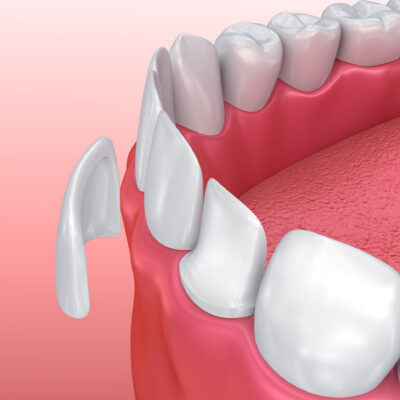Benefits of Veneers
The biggest benefit to veneers is improving the appearance of your teeth, giving you a brighter and more even smile. Dental veneers are often used to treat the following cosmetic occurrences:
- broken or chipped teeth
- severe discoloration or uneven coloring that can’t be fixed with whitening
- gaps in the teeth
- smaller-than-average teeth
- pointed or unusually shaped teeth
Veneers can last for more than a decade, depending on the type of veneer you choose, making them a semi-permanent investment that can make you more confident in your smile.
How to take care of your veneers after they’re placed
Unlike other dental procedures, the recovery process doesn’t take an extended amount of time. Instead, once the veneers are cemented and the anesthesia (if given any) wear off, you can eat and chew as you normally would. While the anesthesia is wearing off, be conscious of not chewing on your cheeks or tongue.
In some cases, immediately after the veneers are applied, you may notice that they feel a little rough. These rough spots (usually from extra cement that can adhere to the veneer) wear down after several days of normal eating and teeth brushing; if they don’t, your dentist can smooth them out.
Traditional porcelain veneers typically last between 10 and 15 years, and no-prep veneers last around 5 to 7 years. Taking certain precautions can help make sure that you get the longest lifespan out of the possible. These precautions include:
- Don’t chew on hard objects like pens, ice, or your fingernails.
- Never use your teeth to open packaging or condiment packages.
- Try not to chew with your front teeth. Eat harder foods with your back teeth
- only; cut up hard foods like chocolate bars so that this is possible.
- If you grind or clench your teeth at night, get a splint or retainer to protect your veneers.
- If playing sports, you must wear a mouthguard.
